Like most of the pastelists out there I also keep lots of tiny pieces of soft Pastel. What can we do with them? Can we recycle them? I keep them selected by color ranges. Many small pieces into a lot of small boxes and pots that accumulate over time, waiting for their moment… Most of those little pieces are too tinny to work with them.
I have several ideas on how to use them…
One of those ideas is to transform them into new Pastel bars. I read a long time ago something about this and I found it was a great idea! The concept is, after some work or a kind of experiment, to turn the material into new useful pastel bars.
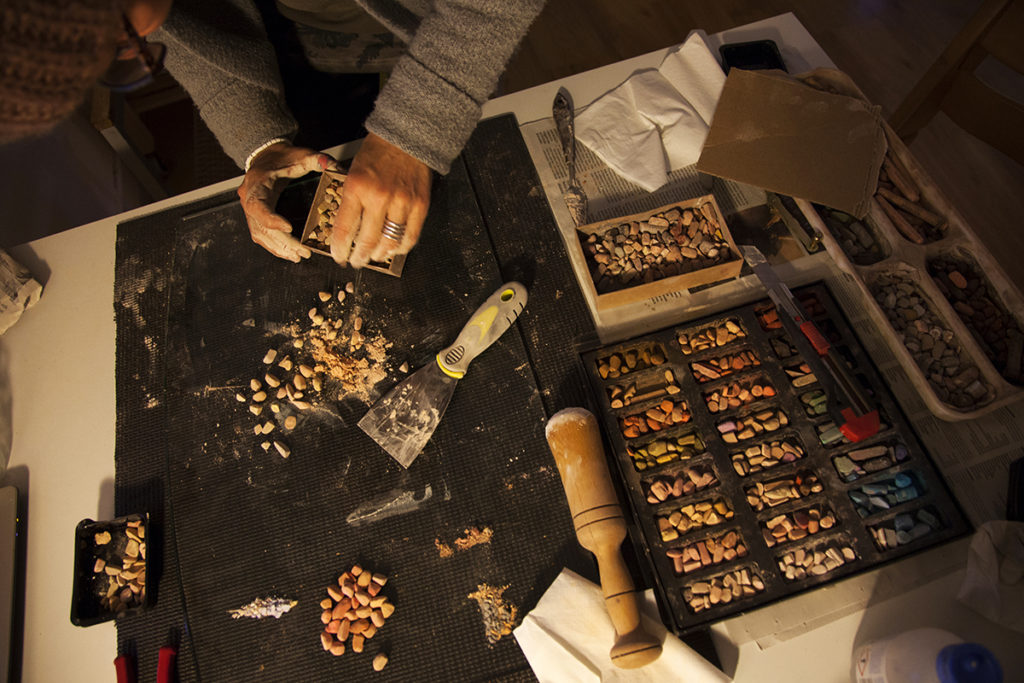
Selecting the small pieces for recycling, Photo by ©Graciela Bombalova, 2019
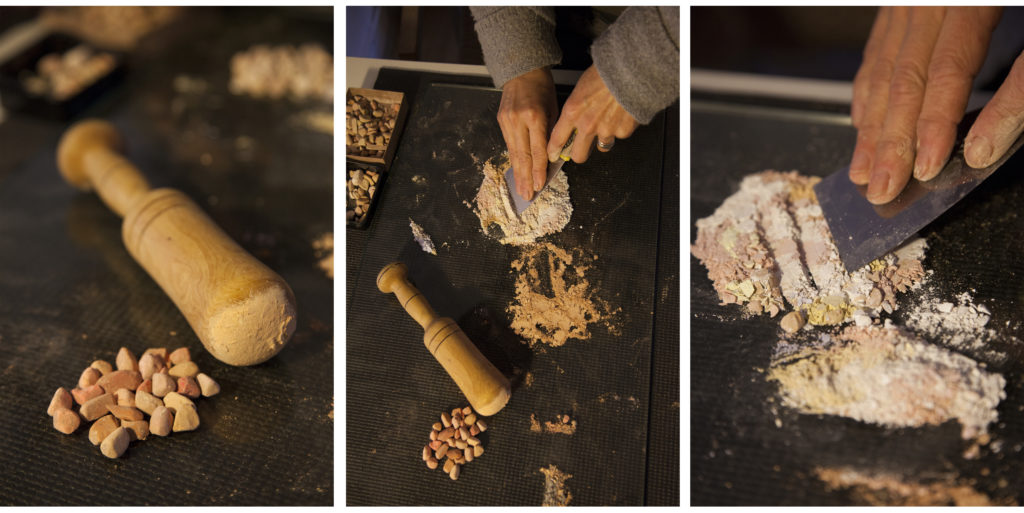
Smashing the pastels, Photo by ©Graciela Bombalova, 2019, All rights reserved
It is about crushing the pieces, turning them into a very fine powder, reaching a texture similar to flour, and with a little bit of pure alcohol, mashing them until creating a moldable paste. Obtain dough and mold it in the form of pastel rolls, which only need to dry afterwards at room temperature. It is a fun way to spend time creating your own pastels, mixing colors that can be very useful in your work, and also recycle and save money, since pastel bars are often expensive.
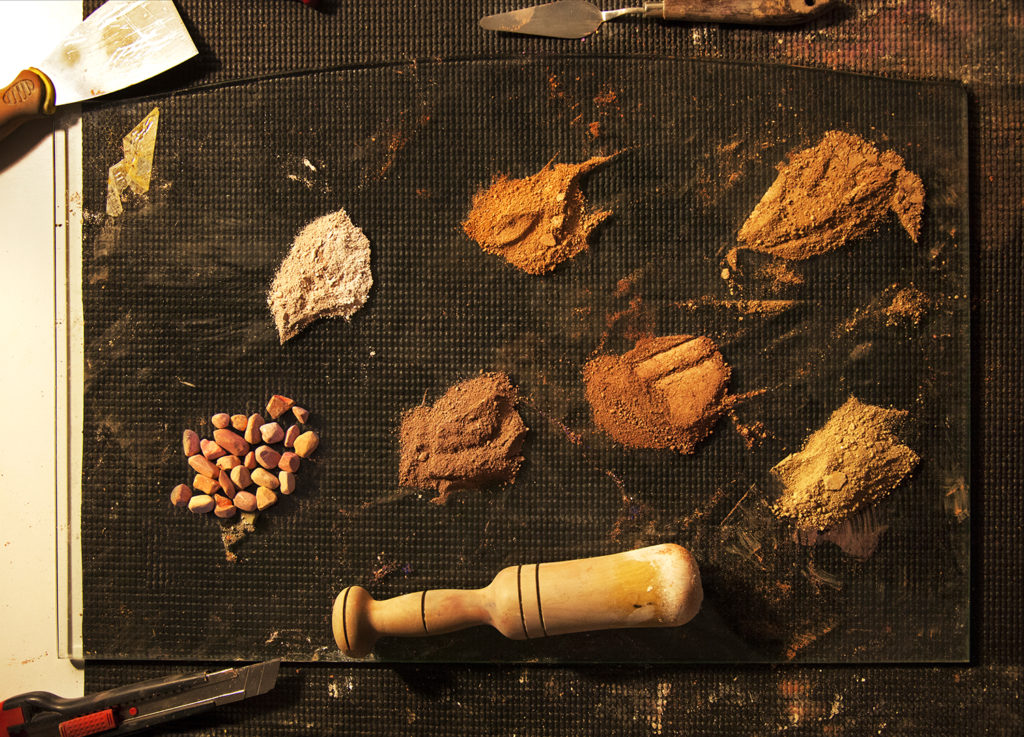
A selection of pastels transformed into pigments… Photo by ©Graciela Bombalova, 2019
Each brand of Pastel has its secret recipes, its mixtures and use of different materials to get a specific texture, the softness that characterizes them! The most difficult thing is to incorporate the exact quantity of binder which will keep an adequate consistency to the bar.
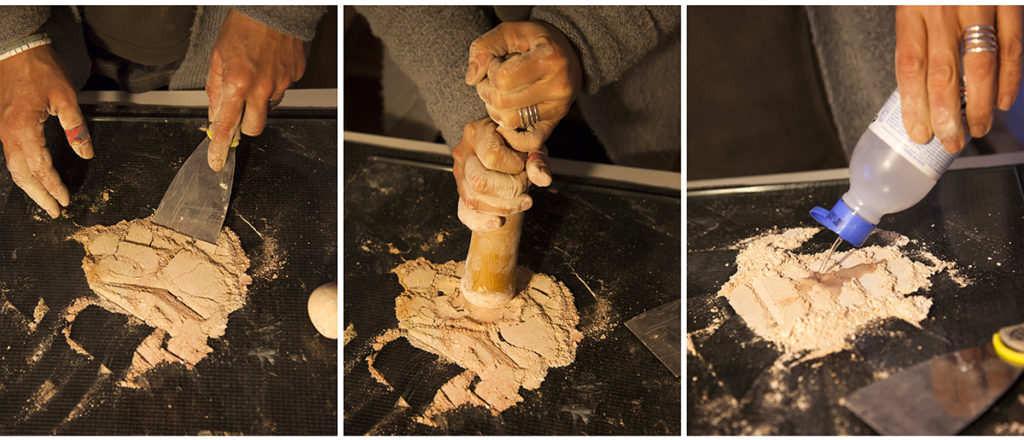
The stages of the Pastel powder, Photo by ©Graciela Bombalova, 2019, All rights reserved
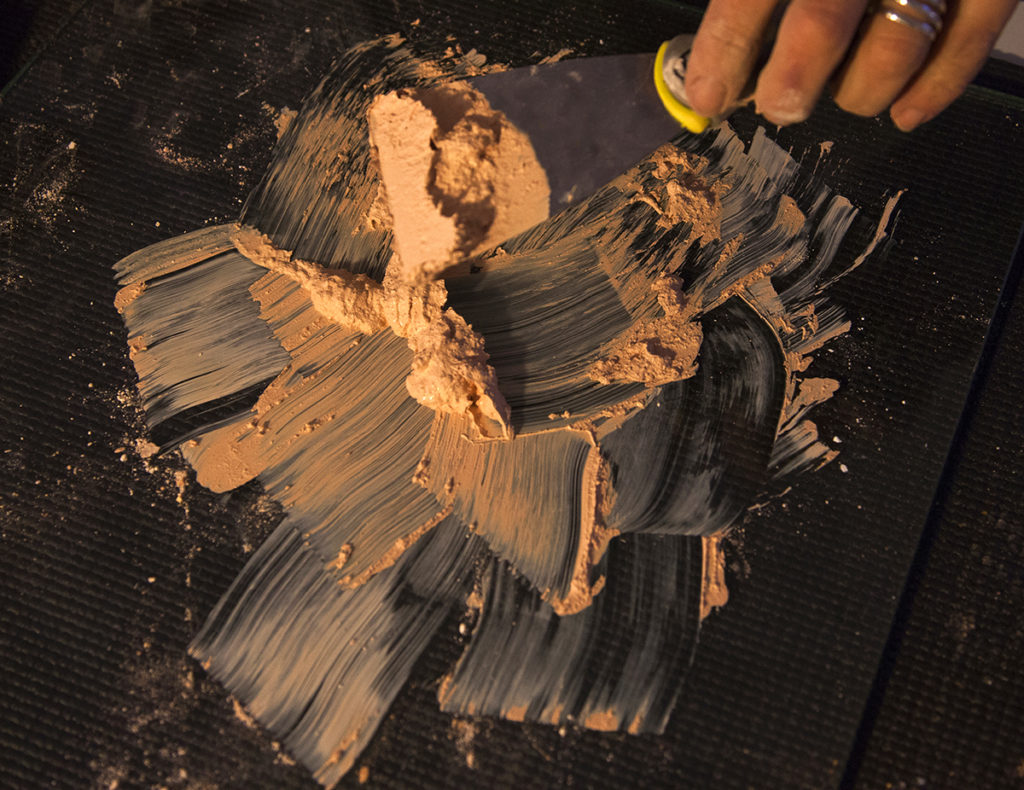
Time to mix well the Pastel with alcohol. Photo by ©Graciela Bombalova, 2019, All rights reserved
But the good news is that remixing these materials, they all have already incorporated within the pigments the binder, that will keep an adequate consistency when we roll into sticks the material. So, theoretically, when you gather enough material and work with it, you should be able to transform it into stable Pastel bars. For my tests, I took pigments and remains in similar colors. Most of them were light colors to which, I could add some piece of stronger color to mix. Some others were earth tones that worked very well together, with the same tonal range.
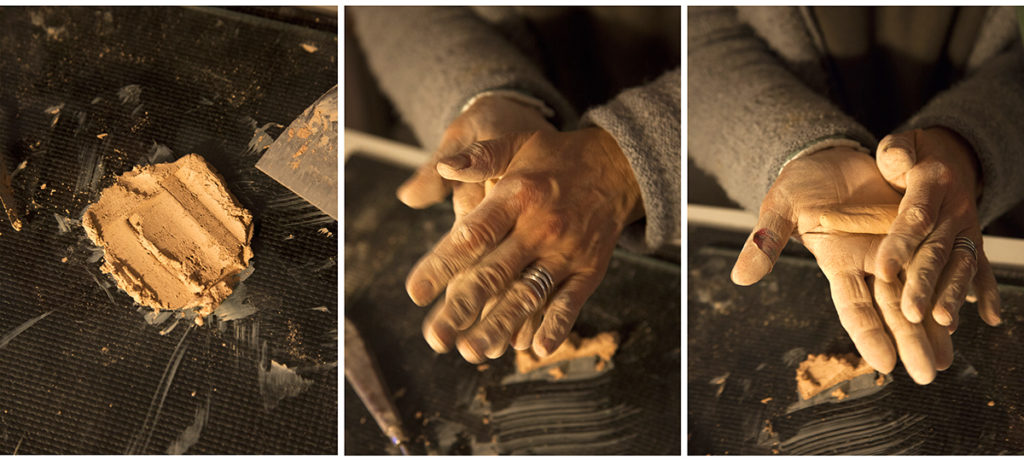
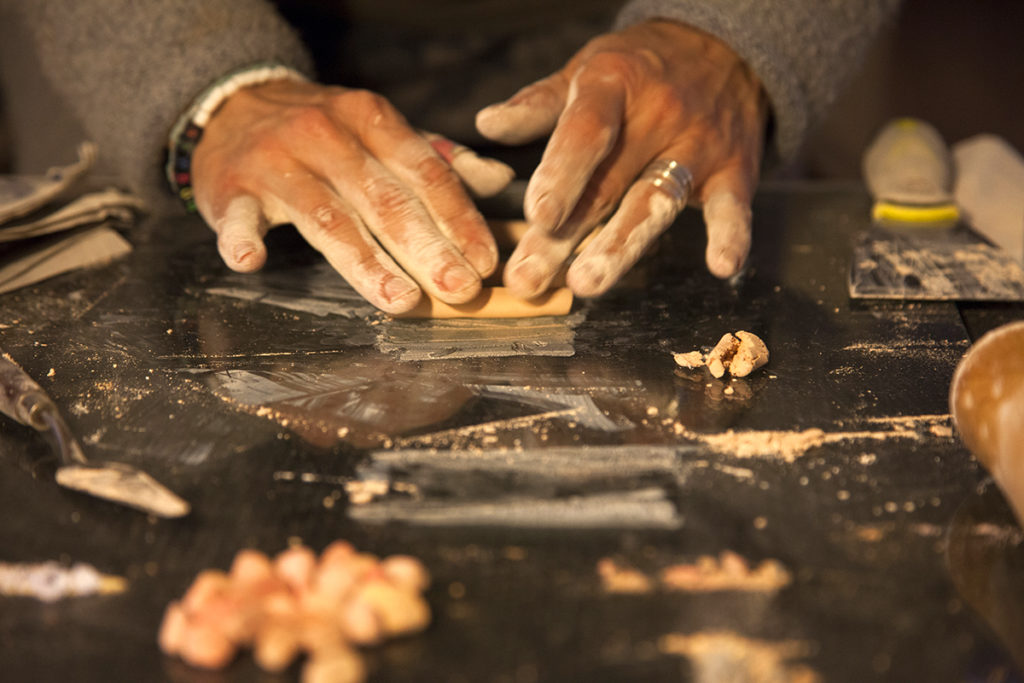
We can roll by hand or on a surface. Photo by ©Graciela Bombalova, 2019, All rights reserved
It is important to reduce the small pieces to dust so we can agglutinate them later. To do this we will use a metal strip, with its flat part, pressing on the pieces and crushing them well. To reduce them to dust I have used a mortar on glass (I used a thick and strong glass and under the glass a non-slip black mat). Once we have all the material well crushed and homogeneous in the finest possible powder, we can add the alcohol. I have used Alcohol of 96º. I pour it little by little and start mixing everything well until I can form a moldable paste, neither too liquid nor too doughy.
As I integrate it and mix it, the alcohol evaporates and leaves the dough like wet mud…this is when we can handle it with our hands. Take your time to mix very well the material. You can use gloves if you feel comfortable with.
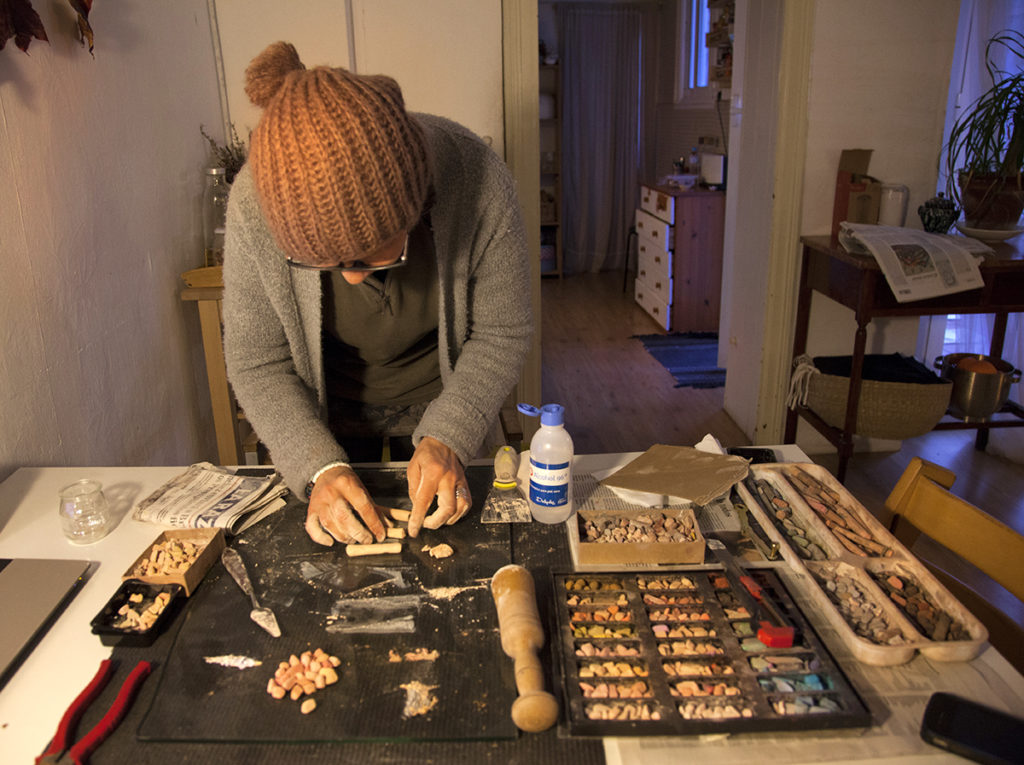
Looking for the good size. Photo by ©Graciela Bombalova, 2019, All rights reserved
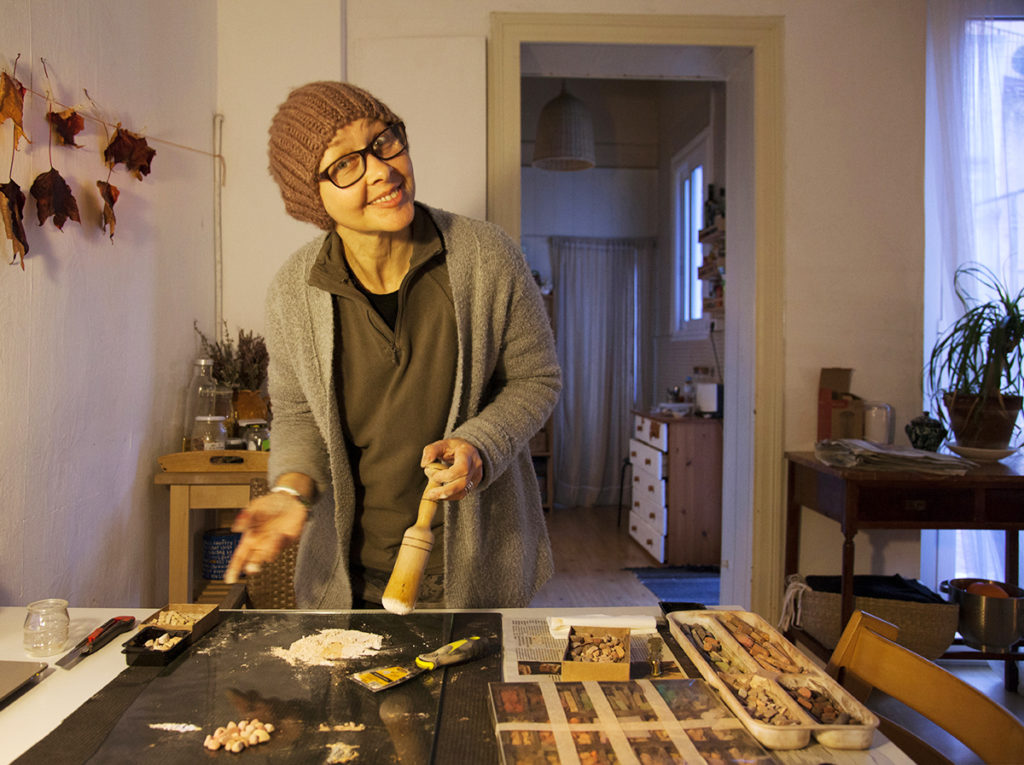
Starting again…Photo by ©Graciela Bombalova, 2019, All rights reserved
With our hands we will take the dough and make a round ball, until it has an adequate consistency, and then we can put it on the table, on a newspaper, and make a roll, either with the hand, or with a piece of cardboard exerting a slight pressure in front and back, without squeezing too much. Once we have the roll to our liking, we will dry it on sheets of newspaper, so that it absorbs the remains of humidity in the Pastel bar. Good luck!
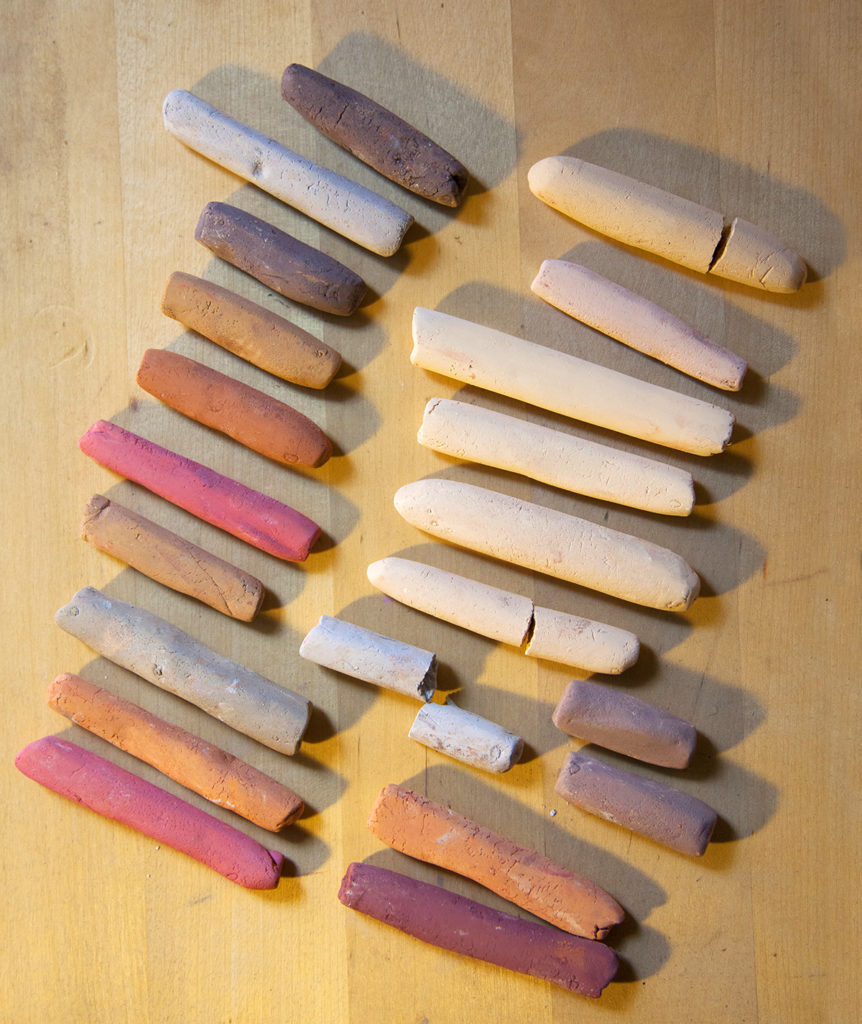
A selection of handmade Pastels, Photo by ©Graciela Bombalova, 2019, All rights reserved

Wouahhhh c’est une super idée
Merci Anita,
Cést vraiement tres amusant…Et practique!
Graciela.
Es una idea tremendamente práctica, gracias por tus consejos, me encanta tu blog!
Gracias Gemma,
Me alegra que le guste la idea…Pronto espero hacer un pequeño post de algo pintado con esos pasteles. A ver que sale!!
Saludos,
Graciela.
Idea molto utile. Grazie per I tuoi conslgli e per I tuoi video. Non vedo l’ ora che torni a farne dei nuovi. Ti ammiro molto. Un saluto. Antonella.
Grazie a te Antonella,
Anche io vorrei fare un nuovo video …..Ma prima devo recuperare completamente e poi vedremo. 🙂
Un saluto,
Graciela.
Certo, la salute prima di tutto. Ti auguro una pronta guarigione. Nel frattempo mi riguardo i tuoi passati tutorial ( li ho visti e rivisti tutti, ma non mi stancano mai) A presto.
very nice idea good work